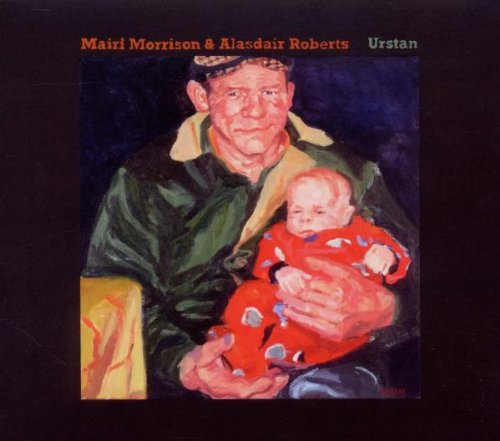
Alasdair Roberts
Urstan
Release Date: Mar 26, 2012
Genre(s): Folk, Celtic, Pop/Rock, Indie Folk, International, Contemporary Celtic
Record label: Drag City
Music Critic Score
How the Music Critic Score works
Buy Urstan from Amazon
Album Review: Urstan by Alasdair Roberts
Very Good, Based on 5 Critics
Based on rating 9/10
The story of this album's genesis is as fascinating as the songs found on it. Through Glasgow, Scotland's Centre for Contemporary Arts, Scottish artist and student of traditional U.K. folk music Alasdair Roberts and singer, actress, and playwright Mairi Morrison were brought together to collaborate on an album that would celebrate Gaelic culture and language.
Based on rating 7.0/10
The long musical journey of Scottish singer and songwriter Alasdair Roberts began in earnest with his group Appendix Out, which emerged in the mid '90s as something like Scotland's answer to Will Oldham's Palace Music, twisting folk influences into strange and intriguing new shapes. But by the time Roberts began cutting solo albums in the early 2000s, he had become somewhat obsessed with the traditional folk music of his homeland, and though he was and is a fine songwriter, he devoted a number of albums to his interpretations of trad folk tunes, breathing new life into the bardic tradition as he went along. In partnership with fellow Scot Mairi Morrison, though, Roberts takes his folk fascination to a new level on Urstan.
Based on rating 6/10
A short while after I’d listened to this album for the first time I came across an online video of the excellent Appalachian singer and banjo player Elizabeth LaPrelle, and the similarity between the bones of her song and the songs on Urstan shouldn’t have struck me so strongly but it did—one thing to know a thing technically, as a fact, and another thing to hear it: LePrelle repeating her refrain, “the Gulf of Mexico” with the same regularity as “be a true love of mine,” in Morrison and Roberts’ “The Tri-Coloured House”, and the pattern of her lyrical news established in neat sets of lines and lilts as it is in their version of “Never Wed An Old Man”, which they’ve borrowed—say the album notes—from a recording done by Alan Lomax in 1953. The song back then was being carried by “the Aberdeenshire Traveller singer Jeannie Robertson,” and now, if you take her surname apart—Robert and -son—and notice the rebirth of those syllables in the surnames of the two new singers—you might fantasise the woman decomposing herself, coming apart, and reassembling, keeping her song. The subject matter is different on both continents, but the skeleton endures, or the coral grows out from its basic organic unit, or however you want to put it into prose visuals: do as you like.
Based on rating C+
Why is it that traditional Scottish and Irish music doesn’t cross over into the indie realm more often? Sure, The Chieftans just cut a record with Bon Iver and The Decemberists, but what about true cross-pollination? Where’s our Celtgaze? And what about Gaelwave? Wherefore art thou, Hip-HopScotch? Dub(lin)step? Get on that, Brooklyn. Let’s start a revolution. Urstan is one of those collaborations that makes so much sense that you have to wonder why it hadn’t come earlier.
Opinion: Very Good
Roberts shows, time and again, there’s life in the old songs yet. Chris Parkin 2012 Whether he puts his considerable talent to writing wordy, traditional-styled ballads or performing centuries-old folksongs dealing in X-rated murder and infanticide, Alasdair Roberts’ albums are nearly always timeless affairs. Take the Scottish treasure’s third and sixth albums, No Earthly Man (2005) and Too Long in This Condition (2010): they contain mostly traditional songs but are mesmerising in their otherworldliness, their stories casting the same foreboding shadow that they would have done in times when savagery was rather more pronounced.
'Urstan'
is available now

